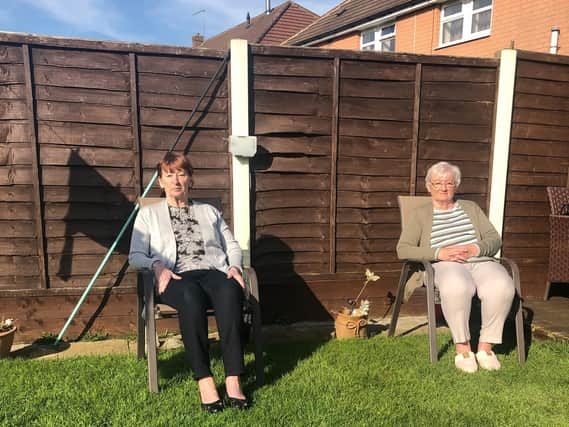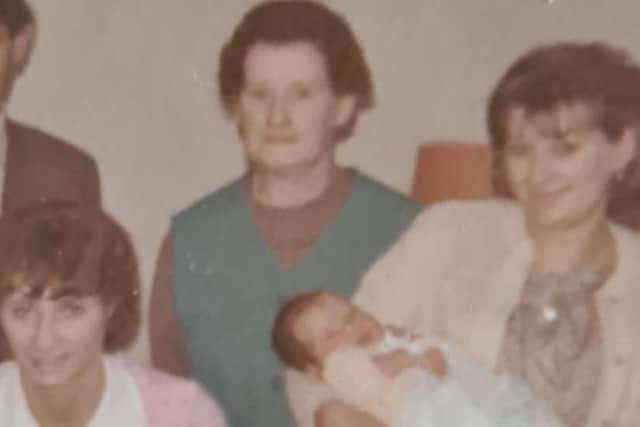“When I see hungry kids now I do know what they’re going through” - Twins look back on their 1950s childhood in Yorkshire


The quote became a symbol of the new-found affluence and social mobility during the post-war years.
Slum housing was cleared to make way for new state-of-the-art high rise flats, rationing was coming to an end, and free healthcare was available on the new National Health Service.
Advertisement
Hide AdAdvertisement
Hide AdIn an era of welfare, near full employment and a better way of life, many who lived through the post-war years look back on them as a golden age – the good old days.


However, they wern’t so good for everyone – poverty, and food poverty, was still being suffered by families up and down the country.
In 1965 Brian Abel-Smith and Peter Townsend published The Poor and the Poorest report, which found that the number of people in poverty in the UK increased from about 4 million in 1953/4 to 7.5 million in 1960.
Born in the freezing February of 1947, twins Norma Andrews and Rosemary Savage were almost delivered unsupervised, as the midwife struggled through the snow up to their home on Toftwood Road, Crookes.
Advertisement
Hide AdAdvertisement
Hide AdThe youngest of five girls, Norma, who now lives in Chesterfield, and Rosemary, who lives in Sheffield, do not look back on their school days with happy memories – lack of money meant they were a target for bullies, as they “stood out”.
“We had a purple blazer each, that we had to wear everyday,” said Rosemary. “Well we were only eight and of course would spill things on it, or get food down in. The teachers would bawl at us for being dirty.”
And in a post-war era, Norma and Rosemary experienced hunger, and a lack of nutritious food throughout their childhood – even though their parents were both working.
Mum Gladys Harrison began work as a waitress at Sheffield Children’s Hospital when the twins were eight, and their dad Herbert “Bert” Harrison was a joiner.
Advertisement
Hide AdAdvertisement
Hide Ad“If we had breakfast, it would be bread and jam,” said Rosemary. “For dinner we’d go home from school and have whatever was in the cupboards – soup, bread and butter, or sometimes an oxo cube in hot water.
“Teatime was when we got a good hot meal. I do remember being hungry, we would have school dinners three days and some days we’d go home for dinner, but what was in the cupboards was sparse. School dinners were basic – beetroot and mash or potatoes and gravy.”
The lack of nutritious, filling food left the twins feeling tired by the afternoon, and struggling to concentrate at school – at Western Road School, which later became Westways.
“You can see it in our faces in pictures, we never looked happy”, added Norma. “It was awful. When I see hungry kids now I do know what they’re going through. It shouldn’t happen today.”
Advertisement
Hide AdAdvertisement
Hide AdAlthough things got better once Rosemary and Norma began work – Rosemary started work in John Shentall’s Grocery shop on Crookes when she left school, and Norma began work soldering for the Sheffield Wireless and Telephone exchange.
However, despite now being comfortable in life, Rosemary and Norma say the effects of their childhood lasted into their adult life.
“We grew up before our time,” said Rosemary.
“I do keep a lot of food in the house,” added Norma. "I don’t ever like to run out.”